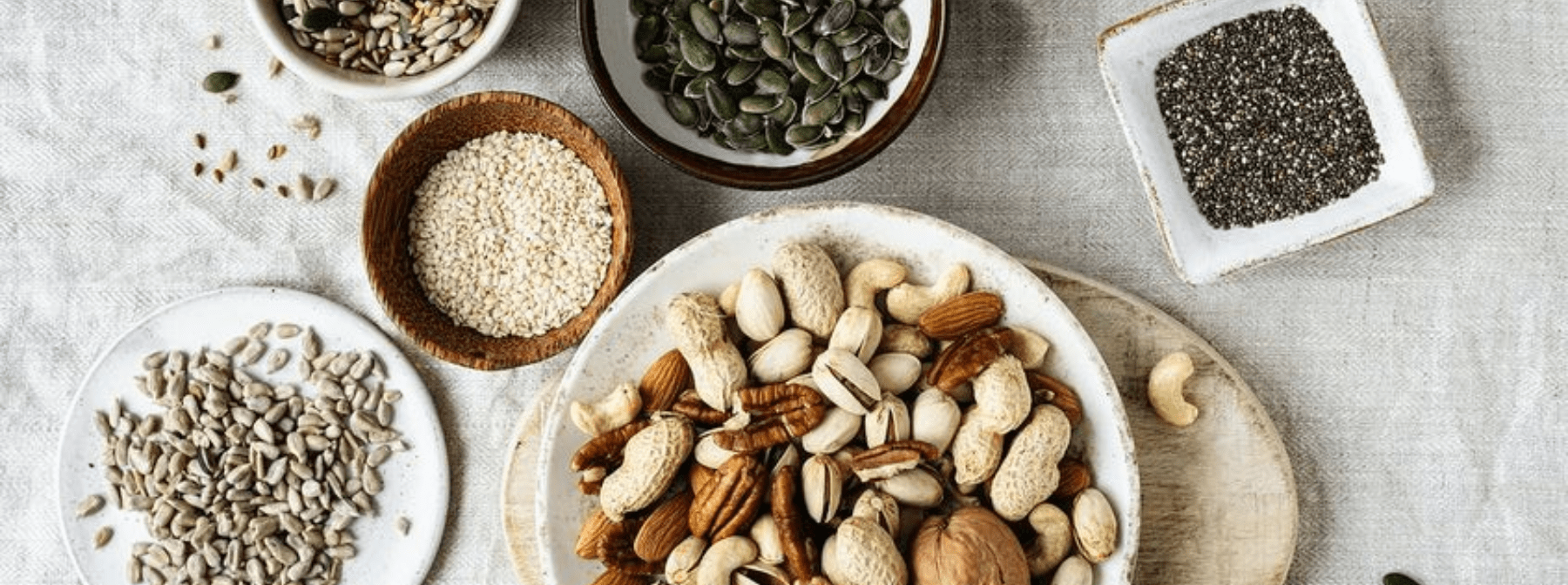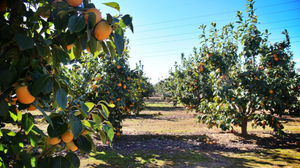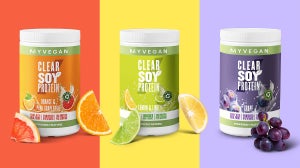
As more and more athletes embrace plant-based diets, the stereotypes surrounding vegans are finally beginning to fade. As you’ll discover, plant-based protein sources are abundant and, contrary to what we’ve been led to believe, animal proteins are absolutely not a necessary part of our diets. Here’s why.
What is protein & why do we need it?
Protein falls under the category of macronutrient, which means it is a food group we need in larger amounts to provide us with energy. Protein is essential, not only for building muscle, but also for energy production at a cellular level within the body. Without protein, there would be limited production of hormones and enzymes, and cells would have difficulty maintaining both shape and function.
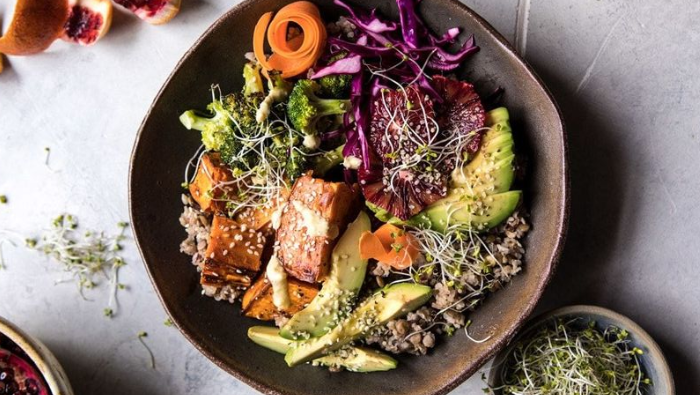
How much protein do we really need?
The protein recommendations for the average sedentary person are 0.8-1.2g of protein per kg of body weight (per day). Protein needs are increased for those who participate in weight training or high-volume training, with the recommendation being 1.2-2g of protein per kg of body weight. Generally, it is recommended to spread protein intake out throughout the day and try to incorporate it into most meals and snacks. A post-workout protein boost can also help support muscle repair and reduce soreness.
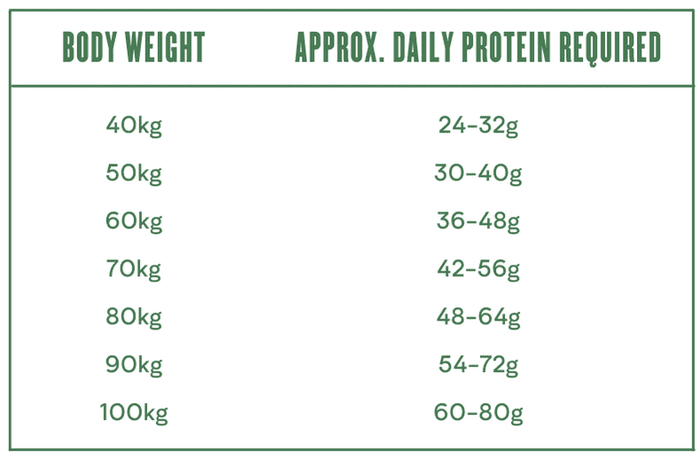
What type of protein do we need?
Animal vs Plant Protein Packages
Traditionally, protein powders and supplements contain whey or casein-based proteins (milk-based proteins). However, over the last few years there has been a surge in plant-based supplements, with pea, soy, rice, and hemp proteins all being popular choices. Evidence suggests that plant-based proteins are equally as affective as animal-based protein sources when it comes to supporting protein needs.
Complete & Incomplete Proteins
Proteins are made up of a combination of 20 amino acids; of these amino acids, 9 are ‘essential’ amino acids. This means the body is unable to synthesise them and must be taken in through diet. A complete protein is one that contains all 9 amino acids – both soy and pea protein fall into this category, as do all animal-based proteins.
What Are The Benefits Of Plant-Based Protein?
Improve Your Overall Wellbeing
Plant-based proteins are associated with improving your overall wellness: multiple research studies have shown that populations that eat a predominately plant-based diet tend to have a have a better quality of life in their elder years, and lower rates of obesity or other health problems. (3)
Support Weight Management
Plant-based proteins may help with weight management: plant-based sources of protein are generally higher in fibre than their animal-based counterparts. Higher fibre content generally helps increase satiety which can be useful for weight control, as well as having a host of other benefits. Examples include improved gut health and improved overall immunity.
Great Source Of Protein
Soy based proteins are an excellent source of protein: soy-based proteins are a complete protein as they contain all the essential amino acids. Soy based products have been shown to reduce LDL cholesterol (‘bad cholesterol’) in the blood (4) and are a great substitute for animal protein.
Better For The Environment
Plant-based proteins are better for the environment: in general, plant-based proteins require less water and less land to produce. They also produce less greenhouse gas during the production process compared to animal-based sources of proteins. (5)
They Have Multiple Uses
Plant-based proteins are versatile: if you want to build a more complete amino acid profile, plant-based proteins combine well without affecting the overall texture or flavour. Myvegan's Vegan Protein Blend is ready mixed and combines pea protein and fava bean protein for maximum protein content. Alternatively, you can mix your own – brown rice and pea are a good combination because, together, they form a complete protein.
Other things to consider?
Overall Calorie Intake
Plant-based diets are often lower in calorie and usually higher in fruit, vegetables and unprocessed carbohydrates. This is great if your goal is to lose weight however, if you are keen to maintain or gain weight, it may be worth regularly including higher caloric foods such as avocado, peanut butter or seeds.
Cooking
Over the last few years there has been a flood of vegan meat-like products available, which are usually high in protein and simple to cook. If you prefer to use beans as a protein source, make sure to soak them thoroughly before cooking if you are using dried beans, as this helps to prevent GI discomfort. Tinned beans and legumes just need a rinse prior to use.
High protein plant-based foods
All things considered, including a variety of high-protein vegan foods in your diet is a great way to make sure you're meeting your recommended allowance. Here are the front-runners. Drum roll, please...
Legumes
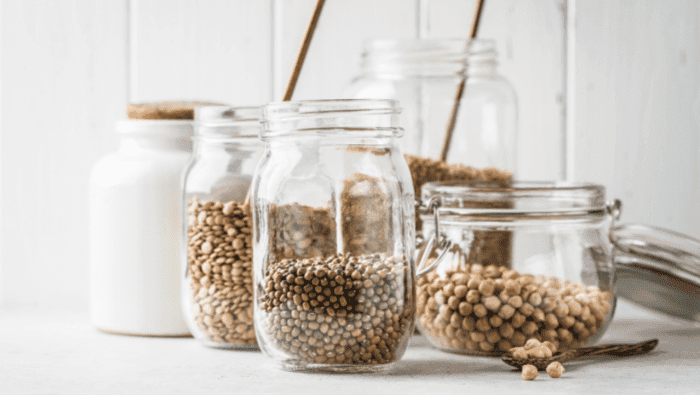
Leguminous plants are those that produce their seeds in pods. We mainly eat the seeds themselves, which are a great source of protein. They're also gluten-free, a good source of unsaturated fats, high in fibre, vitamins and minerals.
Lupin beans
Lupin beans are popular in Europe and a delicious snack with an ice cold beverage on a balmy evening. Once boiled, they pack a huge punch with 26g of protein per cup.
Soy
Soy is a brilliant example of a 'complete' plant-based protein, meaning it contains all 9 of the essential amino acids. One cup of: boiled edamame beans provides 17g of protein; tofu provides 20g and cooked soybeans contain 29g. Soy milk contains exactly the same amount of protein as cow’s milk too, 8g per cup.
Why not boost your shakes and bakes with our best-selling Soy Protein Isolate Powder? Each delicious serving packs in 27g of protein and it comes in 5 irresistible flavours too.
Lentils
There's a reason why vegans are linked to lentils: the truth is they're another great source of low fat, high fibre protein, providing 18g per cup when cooked. Lentils are a great meat replacement in bolognese and lasagne and wonderful in curries and dal.
Beans
Most cooked beans have fairly similar protein contents, ranging from around 13g (broad beans) to 17g (adzuki beans) per cup. The rest - red kidney, borlotti, pinto, black, mung, navy, butter, cannellini, borlotti, etc. - fall somewhere in between. Baked beans, while high in protein, are also high in sugar, not so great in terms of the whole “package”, therefore something to be enjoyed occasionally rather than as a regular part of a healthy plant-based diet.
Peanuts
Yup, peanuts actually fall into the legume category since they grow in a pod underground. Containing a whopping 38g of protein per cup, peanuts make a great addition to so many recipes - including curries, salads and bakes.
Our Peanut Butter is exactly what it says it is. A rich, natural butter produced from 100% roasted whole peanuts and nothing else. No added salt, sugar, palm oil or preservatives and it’s available in both crunchy and smooth varieties.
Top Tip
Some people may find they experience “tummy troubles” when introducing a high quantity of legumes to their diet. This is due to the insoluble fibre they contain that actually helps your digestion. However, it can be a shock to your system if you’re not used to it.
To get all the benefits and none of the issues:
- If you’re changing your diet, build up your fibre intake slowly over a few weeks.
- If using dried beans, always soak them as, this helps your body to digest them more easily (and also reduces cooking time. Win win.)
Whole Grains
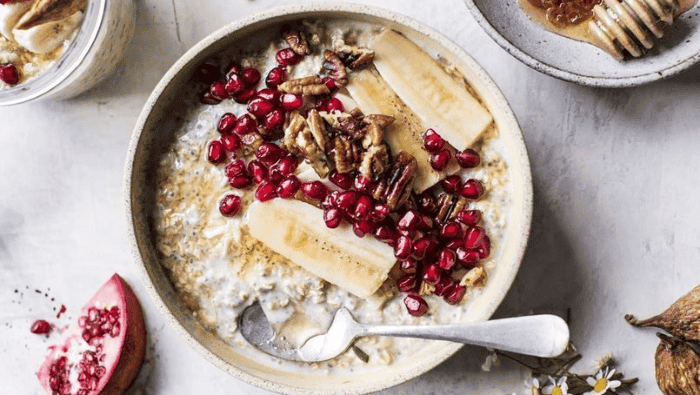
Whole grains are generally higher in calories and lower in protein than legumes, but should absolutely be included as part of a balanced plant-based diet. Per cup, they each contain less than a gram of saturated fat, are a great source of dietary fibre (for healthy bowels amongst other things) and, more surprisingly, often a source of iron too.
Raw Oats
Using oats as a base for a low-sugar muesli or granola is a great start to the day. 1 cup of raw oats provides 10.6g of protein as well as 19% of your recommended daily allowance (RDA) of iron.
Kamut, Teff & Amaranth
Teff, kamut and amaranth are certainly lesser known amongst the whole grains. A grass seed commonly found in Ethiopia, Teff is now available in health stores in the UK. Cooked, a cup yields almost 10g of protein, 29% and 9.5% of your RDAs of iron and calcium respectively. Kamut and Amaranth are easier to find and grown worldwide, offering up similar amounts of protein and 17% and 29% of your iron RDA.
Whole Wheat Pasta
Switching out white pasta for the whole wheat version increases your protein intake by 2 grams and doubles your iron intake as a percentage of your RDA.
Buckwheat
A cup of buckwheat - actually a gluten-free seed - will provide you with 5.7 grams of protein and almost as much dietary fibre. It's another good source of iron and a range of other vitamins and minerals, including manganese, magnesium, phosphorus, niacin, zinc, folate, and vitamin B6. It's a great replacement for rice or pasta, either as it comes or in noodle-form.
Wild & brown rice
Rice is our final grain. It's the lowest in protein but an excellent source of carbohydrates and healthy calories that we need to utilise protein from elsewhere. Brown rice also provides us with magnesium while wild rice (technically a seed) brings in the omega 3.
Nuts and seeds
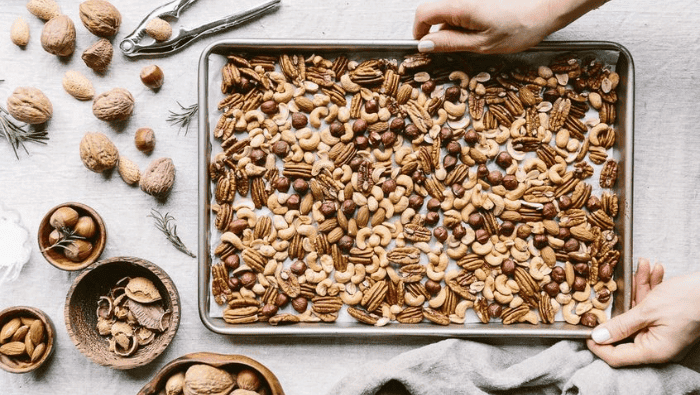
Nuts and seeds rank third because of the package that their protein comes in. While they're absolutely a great addition to a balanced diet, they're higher in fat and calories so should be consumed mindfully. On the flip side, they're excellent in helping to ensure plant-based eaters do actually get enough unsaturated fat and calories. Nuts and seeds contain high levels of protein and are a better source of iron than whole grains.
Quinoa
Quinoa, like soy, is an example of a complete plant-based protein source. It’s a great alternative to oats in porridge, a delicious addition to soups and stews and a yummy salad base in place of pasta or rice. You’ll find 8.2g of protein and 15.4% of your iron RDA in a cup of cooked quinoa.
Hemp Seeds
Another complete protein source, adding ¼ cup of hemp seeds to your porridge or a stir fry boosts your protein intake by 12.5g and provides 18% of your RDA of iron too. They are also a great plant-based source of omega 3.
Flax Seeds
Flax seeds are similar to hemp seeds in their nutritional make-up. ¼ cup contains: 8g protein, 13% of your RDA of iron, 12g of fibre and antioxidants.
Almonds
Almonds are incredibly nutrient-dense: 1 oz (28.5g or 23 kernels) provides you with 21g of protein and 37% of your RDA of Vitamin E. However, the same amount also contains 14g of fat (of which 13 g is unsaturated and only 1g is saturated). Therefore, almonds are a protein package to consume regularly but mindfully as part of a balance diet.
Pistachio Nuts
Half a cup of pistachio kernels contains 13g of protein; they're lower in calories than almonds and contain roughly the same amount of both saturated and unsaturated fats. They're a great source of iron, magnesium and manganese too.
Sunflower Seeds
Sunflower seeds are another easy win. Add a handful to cereal, stir-fries or salads to boost your protein, fibre and iron intake. ¼ cup of sunflower seeds yields 6.25g of protein, 12% and 7.25% of your RDA of fibre and iron respectively.
Vegetables

Surprisingly, you can find protein in vegetables and fruit. Peas (technically a legume but more commonly eaten as a veggie), brussel sprouts, mushrooms (especially Portobellos), spinach, sweetcorn, broccoli and asparagus are some of our favourites. Even baked potatoes are a great way to include more protein in your diet.
Take Home Message
Plant-based sources of protein can help to meet all of your protein needs; animal-based products are really a thing of the past! We have a variety of protein powders and snacks to choose from.
FAQs
How much protein do I need a day?
The average person needs around 0.8-1.2g of protein per kg of body weight. Those with higher activity levels need slightly more protein, around 1.2-2g per kg of body weight, depending on type of activity.
How can I get protein without eating meat?
There are plenty of plant-based protein sources available, from tofu to beans and legumes. Most carbohydrates also contain a small amount of protein, as do certain vegetables. If you need a further protein boost Myvegan has a huge range that can help you meet your needs.
Is plant-based protein good for you?
Plant-based protein not only provides essential amino acids, needed for cell growth and muscle repair, but also has additional benefits such as reduction in cholesterol, enhanced immunity, and anti-inflammatory properties.
Can you get enough protein from plants?
Absolutely! It’s definitely possible to get all the protein you need from plant-based sources. It may take a bit of planning when you first start, but like most dietary choices, this becomes easier with experience.
How do I get more plant-based protein?
One scoop of any of the protein powders will provide 20-25g protein, which is a good start if you are trying to increase your protein intake. If powders aren’t for you, we have plenty of bars and snacks to choose from too.
What are the best sources of plant protein?
Tofu and tempeh are incredibly high in protein, and also contain other benefits such as calcium and iron. Beans and legumes are also great, as they are high in both protein and fibre, so can really help to increase satiety.
Which vegetable has the most protein?
The vegetables with the highest protein content are usually green – peas, spinach and broccoli carry around 4g protein per potion Mushrooms have a similar protein content and even a small baking potato contains 3g of protein!
Our vegan protein powders are a quick and easy way to boost your protein intake, especially when you're on-the-go or if you struggle to hit your daily requirements. Available in a wide range of flavours and formulas, you're sure to find something you love: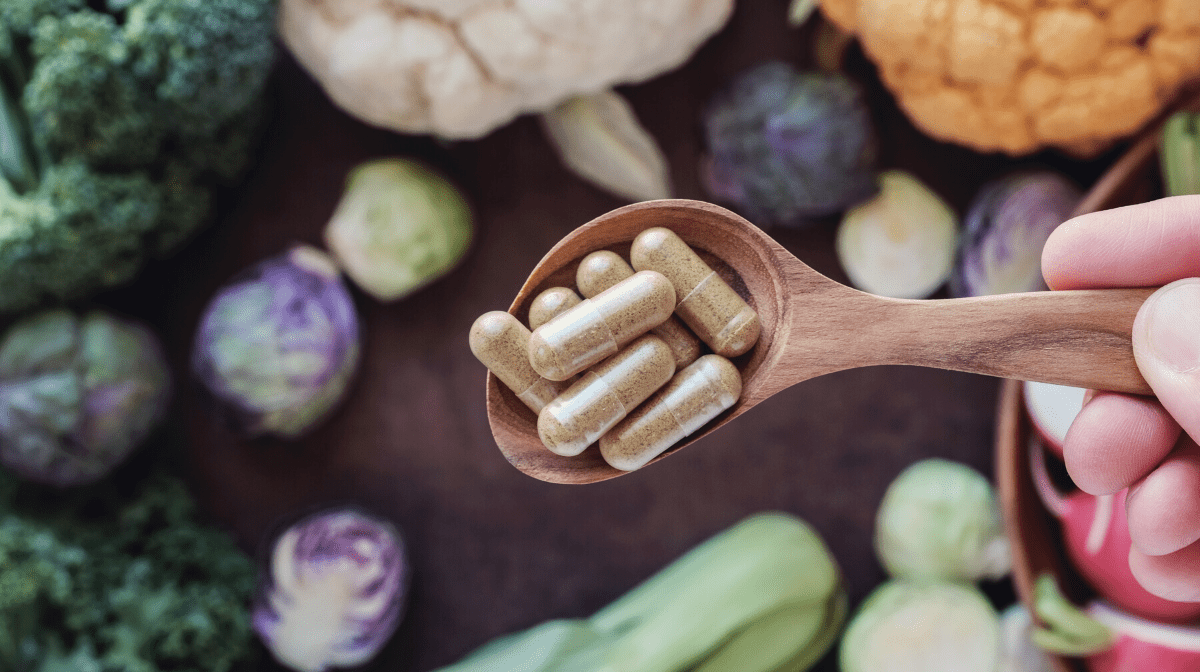
The 4 Best Supplements that Vegans Need in their Diet
If you need to focus on 4 nutrients - it's these.
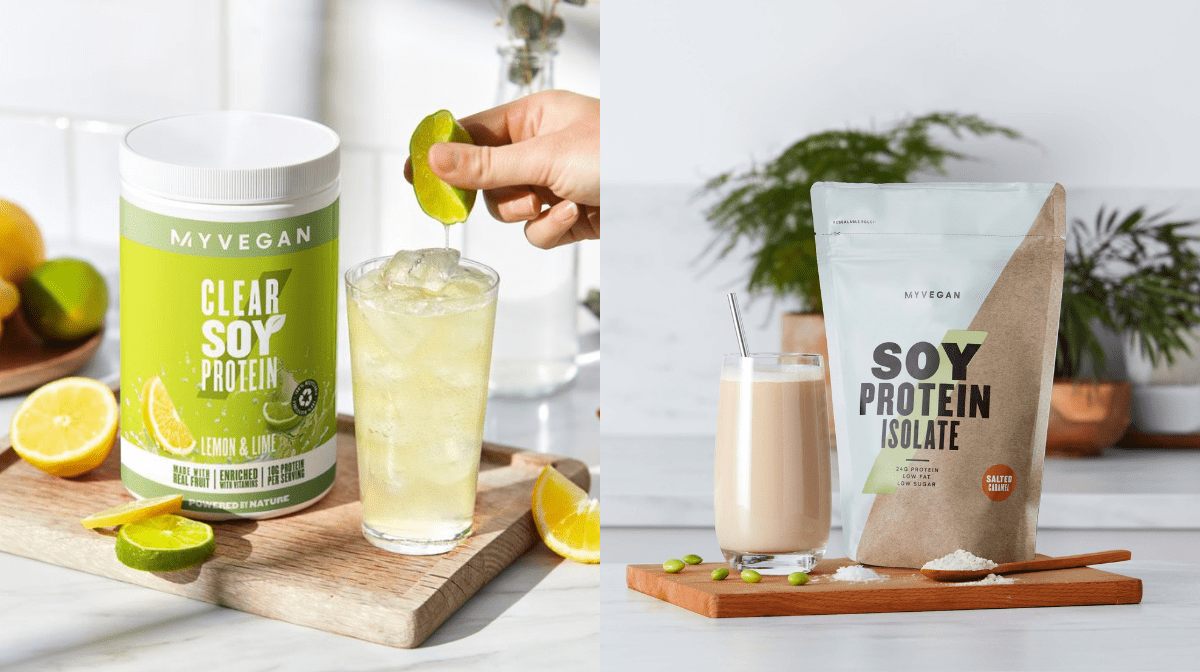
Soy Protein Isolate vs Clear Soy Protein
Find out which soy protein powder is right for you.
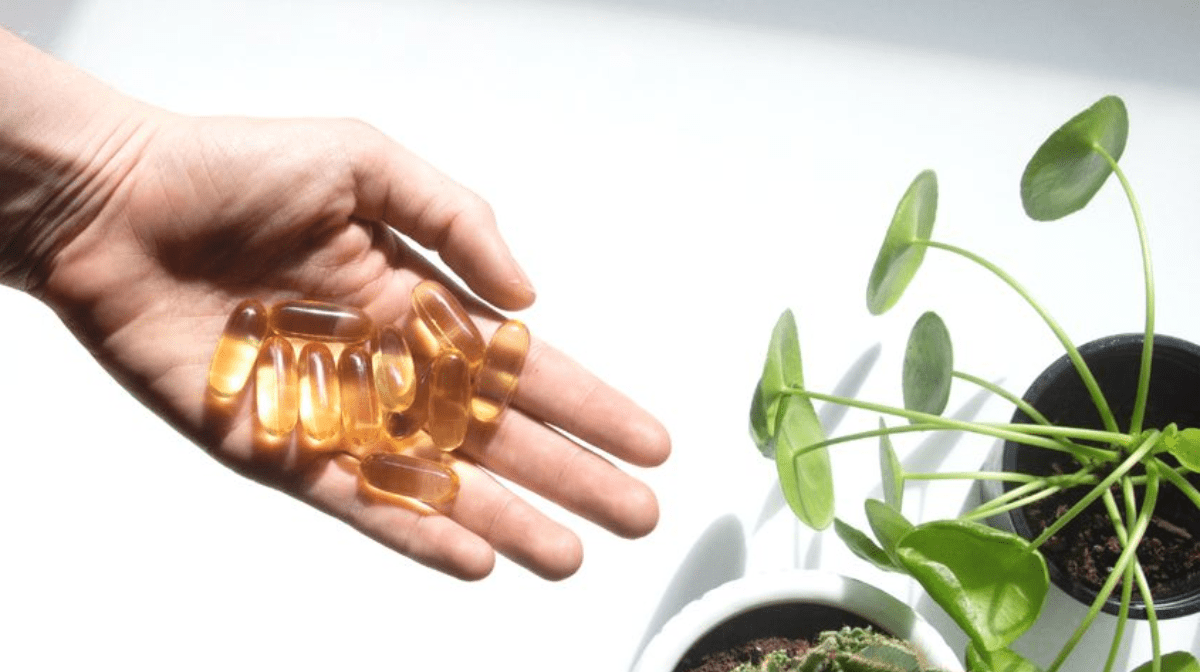
10 Best Vegan Omega-3 Sources | Nutrition, Benefits & More
Incorporate these vegan omega-3 sources into your diet to avoid a deficiency.
1. Hoffman J, Galvo M. Protein- which is best? J Sports Sci Med; 2004; 3(3): 118-130
2. British Dietetic Association. Spot and exercise: food fact sheet [online]. BDA; 2020. Available from: https://www.bda.uk.com/resource/sport-exercise-nutrition.html [Accessed 25th Oc 2022]
3. Tuso P. Nutritional update for physicians: plant-based diets. Perm J; 2013; 17(2): 61-66
4. Pipe E, Gober C, Capes S, Darlington G, Lampe J, Duncan A. Soy protein reduces serum LDL cholesterol and the LDL cholesterol: HDL cholesterol and apolipoprotein B: Apolipoprotein A-I ratios in adults with Type 2 diabetes. J Nutr; 2009; 139(9): 1700-1706
5. Creasey S. Alternative protein and the question of climate impact. [online]. Just food. 2022. Available from https://www.just-food.com/analysis/alternative-protein-and-the-question-of-climate-impact/#:~:text=Broadly%20speaking%2C%20she%20says%20plant,with%20animal%2Dbased%20protein%20production. [Accessed 25th Oct 2022].
6. Joy J, Lowery R, Wilson J, Purpura M, De Souza E, Wilson S et al. The effects of 8 weeks of why or rice protein supplementation on body composition and exercise performance. Nutr J. 2013; 12: 86

